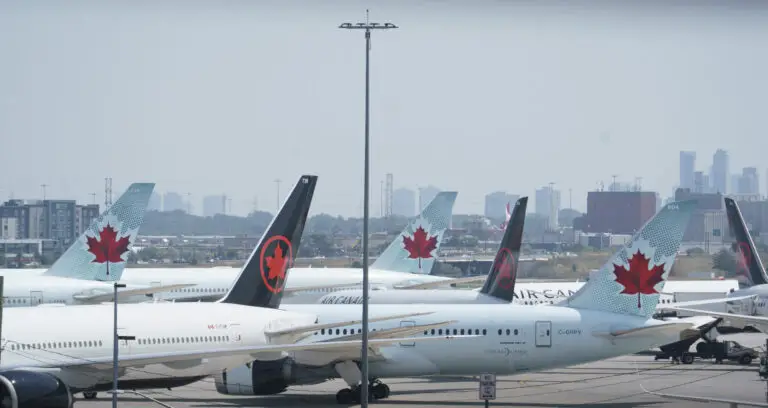TORONTO—Canada’s largest airline is preparing to bring its planes back in the air after a turbulent weekend that saw more than 700 flights grounded when thousands of cabin crew walked off the job.
The walkout by 10,000 Air Canada and Air Canada Rouge flight attendants—sparked by demands for higher wages and compensation for unpaid ground duties—brought much of the airline’s summer schedule to a standstill on Saturday.
By Sunday, the disruption forced Ottawa to step in. Labour Minister Patty Hajdu invoked a rarely used section of the Canada Labour Code, halting the strike and ordering both the airline and the Canadian Union of Public Employees (CUPE) into binding arbitration. Hours later, the Canada Industrial Relations Board (CIRB) issued a ruling compelling staff to return by 2:00 p.m. EDT on August 17.
Passengers Still Face Days of Disruption
Air Canada confirmed late Sunday that operations would begin resuming in the evening, but warned customers not to expect a swift recovery. It said cancellations will continue for the next seven to 10 days as crews and aircraft are repositioned.
The airline carries around 130,000 passengers daily across 180 destinations worldwide, making the strike’s impact immediate and severe.
Union Anger Over Government Move
CUPE blasted the federal government’s intervention, accusing Ottawa of rewarding Air Canada’s hardline stance at the bargaining table. The union highlighted that CIRB chair Maryse Tremblay had previously worked as legal counsel for Air Canada, calling her involvement a “stark conflict of interest.”
“This sets a dangerous precedent,” the union said, noting that workers had no intention of ending the strike voluntarily without a government order.
Standoff Over Wages
The dispute centers on wages and working conditions. Air Canada disclosed that under its proposal, a senior flight attendant would earn an average of C$87,000 annually by 2027. CUPE countered that the offer lags behind inflation and industry standards.
Business leaders had raised alarms before the strike, warning a prolonged stoppage would squeeze Canada’s economy further, especially amid escalating trade tensions tied to U.S. tariffs.
Outlook
While planes are returning to the skies, the bitter clash between Air Canada management and its flight crews leaves a lingering question: has the intervention solved the problem, or only delayed the next confrontation?

